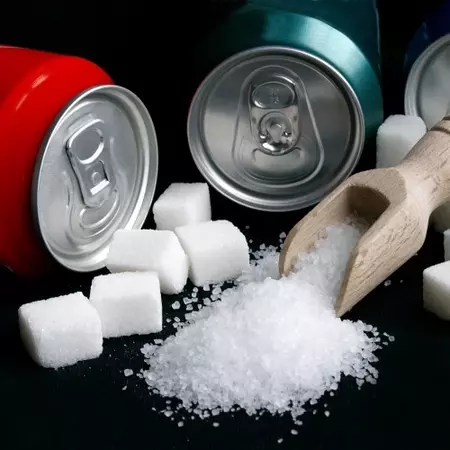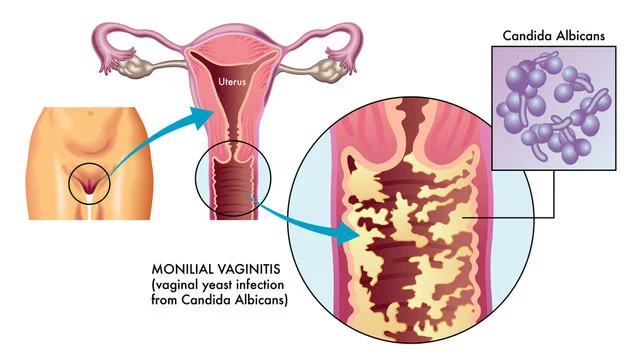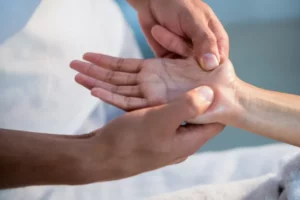Does Sugar Cause Yeast Infections?
Most of us have heard that sugar can cause yeast infections, but is there any truth to this claim? The average American consumes 57 pounds of sugar a year. You may not even be indulging in extra cookies and ice cream on a regular basis. Sometimes just having that extra soda or cup of coffee will put you way over your recommended daily sugar intake.
If you suffer from frequent yeast infections, something as simple as cutting out excess sugar from your diet just may be the miracle remedy you need- or at least the helpful lifestyle change to get rid of yeast infections forever.

How Feng Shui Can Positively Impact Your Home
Can Sugar Cause Yeast Infections?
Yeast is a type of fungus that naturally occurs in the body. There are many different types of yeast, and candida is a type of yeast that commonly causes infections in humans. Candida normally lives on our skin and in our digestive tracts without causing any problems. However, an overgrowth of candida can lead to candidiasis, which can cause infections in the mouth, throat, or vagina.

While sugar doesn’t directly cause candidiasis, it can contribute to an overgrowth of yeast. This is because yeast feeds on sugar, so consuming too much sugar can encourage the growth of yeast. In addition, people with diabetes have higher levels of sugar in their blood, which can also contribute to an overgrowth of yeast.
There are many other factors that can contribute to candidiasis, including pregnancy, taking certain medications, or having a weakened immune system. If you think you may have a yeast infection, it’s important to see your doctor so they can confirm the diagnosis and prescribe the appropriate treatment.
How To Make Your Period Come Faster – 8 Best Things To Do
Natural Remedies for a Yeast Infection

Cutting down on sugar will definitely help reduce the risk of having a yeast overgrowth in your body. Some other popular natural remedies to help get rid of yeast infections include:
Plain, Fat-Free, Greek Yogurt: Yogurt is an excellent probiotic that can help fight against C. Albicans, a fungus closely tied to our gut flora. You can add more yogurt to your diet to help fight yeast infections or apply it directly around or inside your vulva.
Garlic: Garlic has been a long, wives tale, home remedy for yeast infections but there have been many studies showing that it is effective in fighting Candida fungus growth. Increasing the amount of garlic you eat can help get rid of yeast infections. Some recommend inserting garlic directly into the vagina but there aren’t good studies showing this is helpful, and that it may cause more harm.
Coconut Oil or Tea Tree Oil: Coconut and tea tree oil are great natural products that have antifungal properties and help fight against C. Albicans. Just be sure to use pure, organic coconut oil and diluted tea tree oil. Both can be applied on and inside the vulva.
Probiotic Supplements: Over-the-counter probiotic supplements and suppositories can help get rid of yeast infections quickly. Taking supplements or inserting suppositories into the vagina can help immediately restore your vagina’s natural PH balance and yeast levels.
Apple Cider Vinegar: Consuming apple cider vinegar or soaking in an apple cider vinegar bath concoction may be a helpful, natural yeast infection remedy. The acid in the vinegar can help kill bacteria growth and the fungus that causes yeast infections. Be sure to dilute the apple cider vinegar with water before sitting in it. A ratio of 2.5 cups for a mid-way filled bathtub should be safe.
Essential Oil of Oregano: Essential oil of Oregano has been used as a health remedy for centuries, treating wounds and fighting off bacterial and fungal infections. Simply eating oregano won’t garner its whole benefits and they are unlocked when the oregano leaves are grounded down and consumed in oil form. Essential oil of Oregano can be applied directly on the vulva or bought in capsule form and inserted directly.
Are Carrots Really Good For Your Eyes Or Is It An Old Wives’ Tale?
Conclusion
While sugar doesn’t directly cause candidiasis, it can be a leading factor to contribute to an overgrowth of yeast. This is because yeast feeds on sugar, so consuming too much sugar can encourage the growth of yeast. In addition, people with diabetes have higher levels of sugar in their blood, which can also contribute to an overgrowth of yeast. While avoiding sugar won’t necessarily prevent candidiasis, it may help reduce your risk. If you think you may have a yeast infection, see your doctor for a confirmed diagnosis and treatment plan.
Read More:







